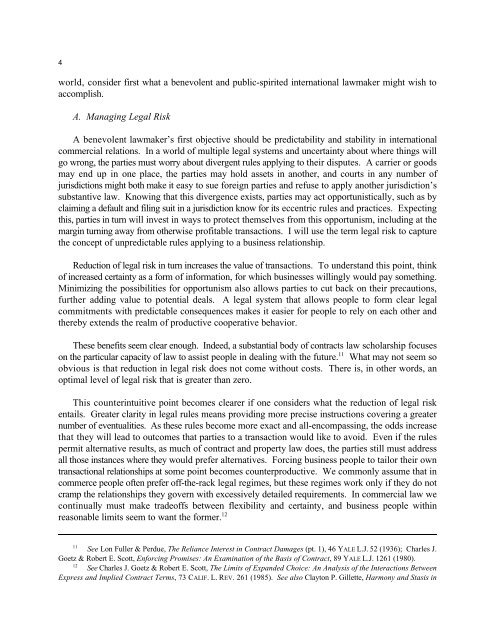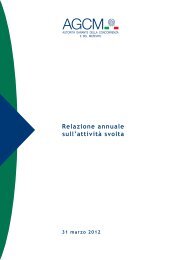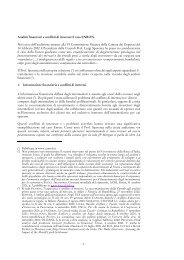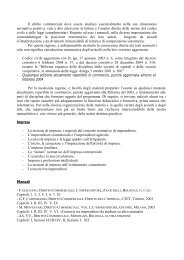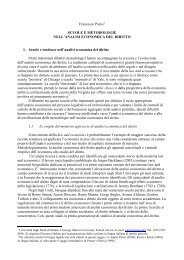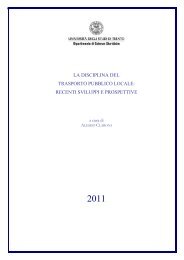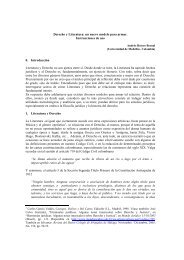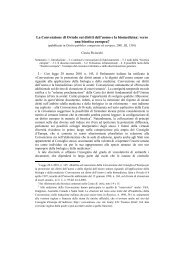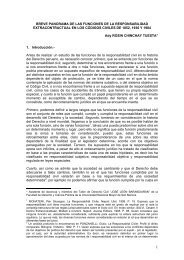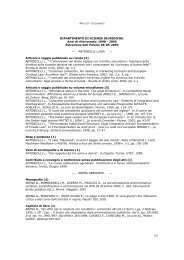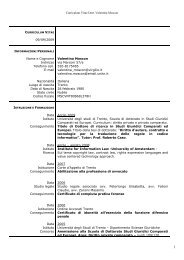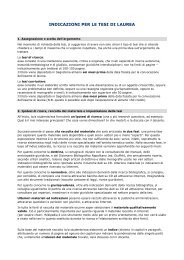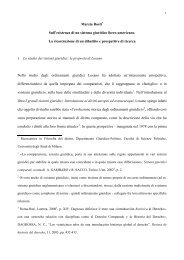The Futility of Unification and Harmonization in International ...
The Futility of Unification and Harmonization in International ...
The Futility of Unification and Harmonization in International ...
Create successful ePaper yourself
Turn your PDF publications into a flip-book with our unique Google optimized e-Paper software.
4world, consider first what a benevolent <strong>and</strong> public-spirited <strong>in</strong>ternational lawmaker might wish toaccomplish.A. Manag<strong>in</strong>g Legal RiskA benevolent lawmaker’s first objective should be predictability <strong>and</strong> stability <strong>in</strong> <strong>in</strong>ternationalcommercial relations. In a world <strong>of</strong> multiple legal systems <strong>and</strong> uncerta<strong>in</strong>ty about where th<strong>in</strong>gs willgo wrong, the parties must worry about divergent rules apply<strong>in</strong>g to their disputes. A carrier or goodsmay end up <strong>in</strong> one place, the parties may hold assets <strong>in</strong> another, <strong>and</strong> courts <strong>in</strong> any number <strong>of</strong>jurisdictions might both make it easy to sue foreign parties <strong>and</strong> refuse to apply another jurisdiction’ssubstantive law. Know<strong>in</strong>g that this divergence exists, parties may act opportunistically, such as byclaim<strong>in</strong>g a default <strong>and</strong> fil<strong>in</strong>g suit <strong>in</strong> a jurisdiction know for its eccentric rules <strong>and</strong> practices. Expect<strong>in</strong>gthis, parties <strong>in</strong> turn will <strong>in</strong>vest <strong>in</strong> ways to protect themselves from this opportunism, <strong>in</strong>clud<strong>in</strong>g at themarg<strong>in</strong> turn<strong>in</strong>g away from otherwise pr<strong>of</strong>itable transactions. I will use the term legal risk to capturethe concept <strong>of</strong> unpredictable rules apply<strong>in</strong>g to a bus<strong>in</strong>ess relationship.Reduction <strong>of</strong> legal risk <strong>in</strong> turn <strong>in</strong>creases the value <strong>of</strong> transactions. To underst<strong>and</strong> this po<strong>in</strong>t, th<strong>in</strong>k<strong>of</strong> <strong>in</strong>creased certa<strong>in</strong>ty as a form <strong>of</strong> <strong>in</strong>formation, for which bus<strong>in</strong>esses will<strong>in</strong>gly would pay someth<strong>in</strong>g.M<strong>in</strong>imiz<strong>in</strong>g the possibilities for opportunism also allows parties to cut back on their precautions,further add<strong>in</strong>g value to potential deals. A legal system that allows people to form clear legalcommitments with predictable consequences makes it easier for people to rely on each other <strong>and</strong>thereby extends the realm <strong>of</strong> productive cooperative behavior.<strong>The</strong>se benefits seem clear enough. Indeed, a substantial body <strong>of</strong> contracts law scholarship focuses11on the particular capacity <strong>of</strong> law to assist people <strong>in</strong> deal<strong>in</strong>g with the future. What may not seem soobvious is that reduction <strong>in</strong> legal risk does not come without costs. <strong>The</strong>re is, <strong>in</strong> other words, anoptimal level <strong>of</strong> legal risk that is greater than zero.This counter<strong>in</strong>tuitive po<strong>in</strong>t becomes clearer if one considers what the reduction <strong>of</strong> legal riskentails. Greater clarity <strong>in</strong> legal rules means provid<strong>in</strong>g more precise <strong>in</strong>structions cover<strong>in</strong>g a greaternumber <strong>of</strong> eventualities. As these rules become more exact <strong>and</strong> all-encompass<strong>in</strong>g, the odds <strong>in</strong>creasethat they will lead to outcomes that parties to a transaction would like to avoid. Even if the rulespermit alternative results, as much <strong>of</strong> contract <strong>and</strong> property law does, the parties still must addressall those <strong>in</strong>stances where they would prefer alternatives. Forc<strong>in</strong>g bus<strong>in</strong>ess people to tailor their owntransactional relationships at some po<strong>in</strong>t becomes counterproductive. We commonly assume that <strong>in</strong>commerce people <strong>of</strong>ten prefer <strong>of</strong>f-the-rack legal regimes, but these regimes work only if they do notcramp the relationships they govern with excessively detailed requirements. In commercial law wecont<strong>in</strong>ually must make trade<strong>of</strong>fs between flexibility <strong>and</strong> certa<strong>in</strong>ty, <strong>and</strong> bus<strong>in</strong>ess people with<strong>in</strong>reasonable limits seem to want the former. 1211See Lon Fuller & Perdue, <strong>The</strong> Reliance Interest <strong>in</strong> Contract Damages (pt. 1), 46 YALE L.J. 52 (1936); Charles J.Goetz & Robert E. Scott, Enforc<strong>in</strong>g Promises: An Exam<strong>in</strong>ation <strong>of</strong> the Basis <strong>of</strong> Contract, 89 YALE L.J. 1261 (1980).12See Charles J. Goetz & Robert E. Scott, <strong>The</strong> Limits <strong>of</strong> Exp<strong>and</strong>ed Choice: An Analysis <strong>of</strong> the Interactions BetweenExpress <strong>and</strong> Implied Contract Terms, 73 CALIF. L. REV. 261 (1985). See also Clayton P. Gillette, Harmony <strong>and</strong> Stasis <strong>in</strong>


